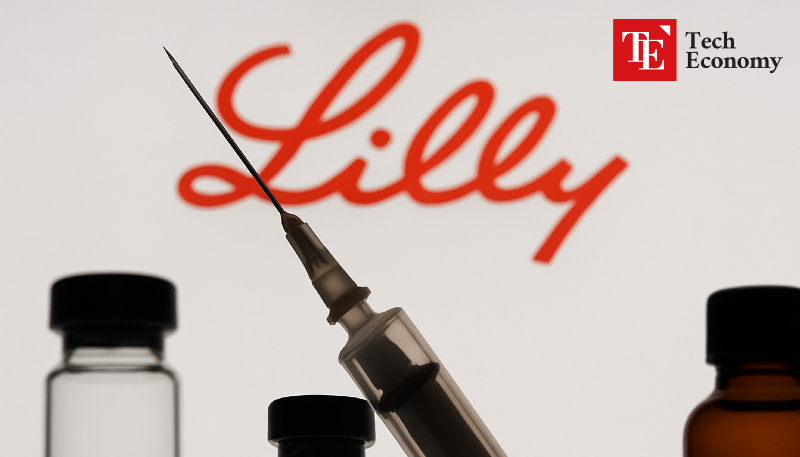Eli Lilly Acquires Series of Biotech Startups — “Aiming for the Global Biopharma Throne”
Input
Modified
Acquisition of SiteOne, Developer of Non-Opioid Painkillers Secures ‘STC-004,’ a Nav1.8 Inhibitor Entering Phase 2 Trials “Aims to Improve Treatment Accessibility and Reduce Dependency”

Global pharmaceutical giant Eli Lilly has entered the pain management market by acquiring U.S.-based biotech company SiteOne Therapeutics. This move follows its acquisition last year of Morphic, a company developing treatments for inflammatory bowel disease. Eli Lilly is strengthening its pipeline by fully absorbing biotech firms that have entered clinical trial stages, signaling a strategic push through targeted acquisitions.
Eli Lilly Acquires SiteOne Therapeutics, Eyes the Global Biopharma Throne
Global pharmaceutical leader Eli Lilly has made a bold move into the pain management market by acquiring SiteOne Therapeutics, a U.S.-based biotech firm. Known for developing sodium channel-targeting small molecule inhibitors for treating pain and other neuron hyperexcitability disorders, SiteOne is now part of Eli Lilly’s growing pipeline. The acquisition, reportedly worth up to USD 1 billion including upfront and milestone payments, underscores Lilly’s aggressive M&A strategy of absorbing clinical-stage biotechs to accelerate drug development.
One of the most notable assets included in the deal is STC-004, a non-opioid pain therapy candidate designed for once-daily dosing. STC-004 is a Nav1.8 sodium ion channel inhibitor and is expected to enter Phase 2 clinical trials soon. In a Phase 1 trial announced this February, the drug demonstrated rapid absorption and strong tolerability.
Should STC-004 gain regulatory approval, it could become a next-generation, non-addictive treatment for chronic pain, offering an alternative to opioids—a class of drugs that has fueled a serious addiction crisis in the U.S. Commenting on the acquisition, Mark Mintun, VP of Neuroscience R&D at Eli Lilly, stated, “With the global burden of chronic pain on the rise, there is a pressing need for non-opioid analgesics that carry no risk of addiction. STC-004 represents a major innovation in pain management and could play a crucial role in meeting that unmet medical need worldwide.”
Strengthening Its Immunology Pipeline with Morphic
The SiteOne acquisition follows Eli Lilly’s 2023 purchase of Morphic, an immunology-focused biotech, for USD 3.2 billion. Morphic’s lead candidate, MORF-057, is a selective oral small-molecule inhibitor targeting α4β7 integrin for the treatment of inflammatory bowel disease (IBD). MORF-057 is currently being evaluated in two Phase 2 trials for ulcerative colitis and one for Crohn’s disease.
The target α4β7 has already been validated in the IBD treatment space with the approval of vedolizumab (brand name Entyvio), which works by blocking the interaction between α4β7 on circulating T cells and the MAdCAM-1 receptor on mucosal blood vessels, thereby preventing lymphocytes from migrating to inflamed intestinal tissue. In addition to its IBD candidate, Morphic is also advancing preclinical programs for autoimmune diseases, pulmonary hypertension, fibrotic diseases, and cancer.

Challenging the Obesity Drug Leader with AI-Powered Strategy
Beyond expanding its treatment pipeline, Eli Lilly is also targeting dominance in the obesity drug market, a space currently led by Novo Nordisk. Since launching its breakthrough obesity treatment Wegovy in 2021, Novo has held the number one spot. However, Lilly’s rapid progress in developing an oral obesity medication may soon flip the leaderboard.
In March, Eli Lilly announced positive Phase 3 trial results for Orforglipron, its oral obesity and diabetes drug. After nine months of use, patients experienced an average weight loss of 7.3 kg. Following the announcement, Eli Lilly’s stock price rose 14%, while Novo Nordisk’s fell 7%, reflecting market sentiment that Lilly could overtake Novo in the near future.
Until late last year, Novo Nordisk held the clear advantage. Having produced insulin since 1923, Novo was the first in the world to synthesize human insulin using E. coli (in 1978) and to release a pen-type injector (in 1985). It launched Saxenda, the world’s first GLP-1-based obesity drug, in 2014, and Wegovy in 2021. But momentum shifted in late 2023 when Novo’s new drug CagriSema underperformed in clinical trials, causing its share price to drop. Meanwhile, Wegovy faced persistent supply shortages, and Lilly’s once-daily oral pill, in contrast to Wegovy’s weekly injections, started gaining an edge in clinical performance and consumer appeal.
Oral medication offers lower costs and greater convenience, which could dramatically expand global demand for obesity treatment. Industry insiders credit Eli Lilly’s open AI strategy for its rapid and high-quality development. In the past two to three years, Lilly has launched over 100 AI-driven drug discovery projects in collaboration with tech partners like OpenAI, XtalPi, Genentech Leap, and Atomwise. These partnerships allow Lilly to accelerate drug candidate selection, streamline clinical trial design, and optimize oral delivery mechanisms, all powered by real-time healthcare data.





















